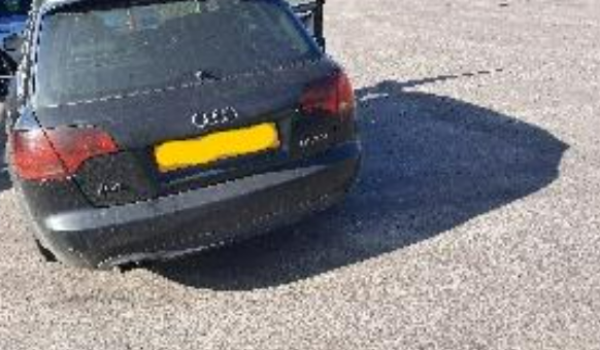
Irish Water is urging residents and businesses supplied from Lough Colm and Lough Fad to continue to minimise water usage for the foreseeable future.
A spokesperson is not ruling out restrictions to the supplies into the future as a result of unseasonably dry weather conditions.
Lough Colm serves Milford, Kerrykeel, Rathmullan, and Ramelton, while Lough Fad serves Quigley’s Point, Redcastle, Moville and part of Greencastle.
Councillors have been briefed about plans to alleviate the problems, but Irish Water’s Donegal spokesperson Laurence Nash says the short term problem is serious………
Irish Water statement in full –
11 July 2017- Irish Water is reiterating its request to residents and businesses in County Donegal supplied by Lough Colm and Lough Fad to continue to conserve water and minimise water usage for the foreseeable future due to the unseasonably dry weather conditions.
Two meetings took place last Friday (July 7) with elected representatives from the impacted communities. The briefings outlined details of over €9 million which is being invested by Irish Water in several different projects as well as the drought prevention measures that Irish Water and Donegal County Council are carrying out to help conserve water including the redistribution of water from adjacent water supplies. All the planned drought prevention measures include consultation with the Health Service Executive who will continue to monitor water quality as required by legislation.
Commenting Irish Water’s Operations Lead for Donegal Laurnece Nash said: “The main message is that we are urging people to conserve water and report leaks. People are asked to be conscious of their water consumption. Small changes by individuals can have a positive impact on water reserves. Irish Water is asking the public for their assistance by reporting all leaks to help conserve water and reduce loss of water in the network due to leakage.”
In the short term in the Milford area €750,000 is being spent by Irish Water on pipeline extensions while in the long term €1.2m is being invested in pipeline extensions from Milford to Letterkenny. A further €750,000 is also being spent in extending the supply from Cranford to Milford.
In East Inishowen €150,000 is being invested by Irish Water in pipeline extension works and the recommissioning of the Moville Water Treatment Plant in the short term. A long term project in this area will see an interconnector laid between Illies and East Inishowen which is being progressed at a cost to the utility of €5.8 million. This is combined with a further €500,000 spend on water rehabilitation pipe line replacement works.
Mr Nash added: “Water supply levels in Lough Colm and Lough Fad are reaching critically low levels and unless there is a spell of persistent and heavy rain for a prolonged period of time it is highly unlikely water levels will be restored to the normal level for this time of year. We are asking people to check their homes for leaks, turning off the tap while brushing teeth, showering rather than bathing and ensuring washing machines and dishwashers are fully loaded before use. These are just some of the measures which will help reduce demand on water supplies.”
At Friday’s meetings it was outlined that customers on some parts of the Milford supply zone will now be served from Goldrum. This is a temporary measure until Irish Water and Donegal County Council are satisfied that Lough Colm can satisfy the total demand for the area. Providing water from the Goldrum supply will ensure that local communities have access to water during this extended and unprecedented period of dry weather.
Irish Water and Donegal County Council will be distributing information leaflets providing advice on water conservation measures to homes and businesses in the impacted areas towards the end of this week and early next week. Tips include making sure your dishwasher and washing machine are fully loaded before you turn them on and having a water butt in your garden to capture rain water.
Consumers served from the Lough Colm source which serves the Milford, Kerrykeel, Rathmullan, and Ramelton areas, and also the Lough Fad source which serves the Quigley’s Point, Redcastle, Moville and part of Greencastle are asked to conserve as much water as possible and to report any leaks they see by calling the Irish Water Customer Care helpline which is open 24/7 on 1850 278 278. Maps of the affected areas and further information can be viewed on the Irish Water website on the supply and service update section ofwww.water.ie
Irish Water and Donegal County Council are continuing to look for and repair leaks on the public water networks to reduce leakage and have repaired 36 leaks to date this year in Milford and Inishowen on the public network.
Irish Water’s Top Tips for Conserving Water:
- Leak free: Check that your home is leak free. Check for running overflows and fix any dripping taps, cisterns or pipes.
- Don’t let the tap run: Brushing your teeth with the tap running can use up to a staggering 6 litres per minute. Brushing your teeth with the tap off will use a more modest 1 litre of water.
- Shower vs. Bath: The average bath uses 80 litres of water compared to an average shower using 49 litres in seven minutes. Switch your bath to a shower for a massive water saving.
- Less time: With the average shower using 7 litres of water per minute by turning your five minute shower into four minutes, you could save up to 7 litres of water per day.
- Customers are asked to refrain from using piped water supplies for activities such as watering lawns and gardens, washing cars, and washing down yards.
- Fully loaded: Always ensure your dishwasher and washing machines are fully loaded. A modern washing machine uses approximately 65 litres of water per cycle while a dishwasher uses 20 litres. By ensuring they are fully loaded, not only will you conserve water but you will also reduce your energy bills.
- Don’t flush it all away: A third of all water used in the home is flushed down the toilet. Some larger cisterns can continue to work effectively with a smaller flush. Place a displacement device into the cistern (out of the way of moving parts) to save water.
- Don’t forget to collect: Rainwater is excellent for your garden. Collect it in a water butt from your gutters but always make sure to securely cover the large container for safety.
Podcast: Play in new window | Download






